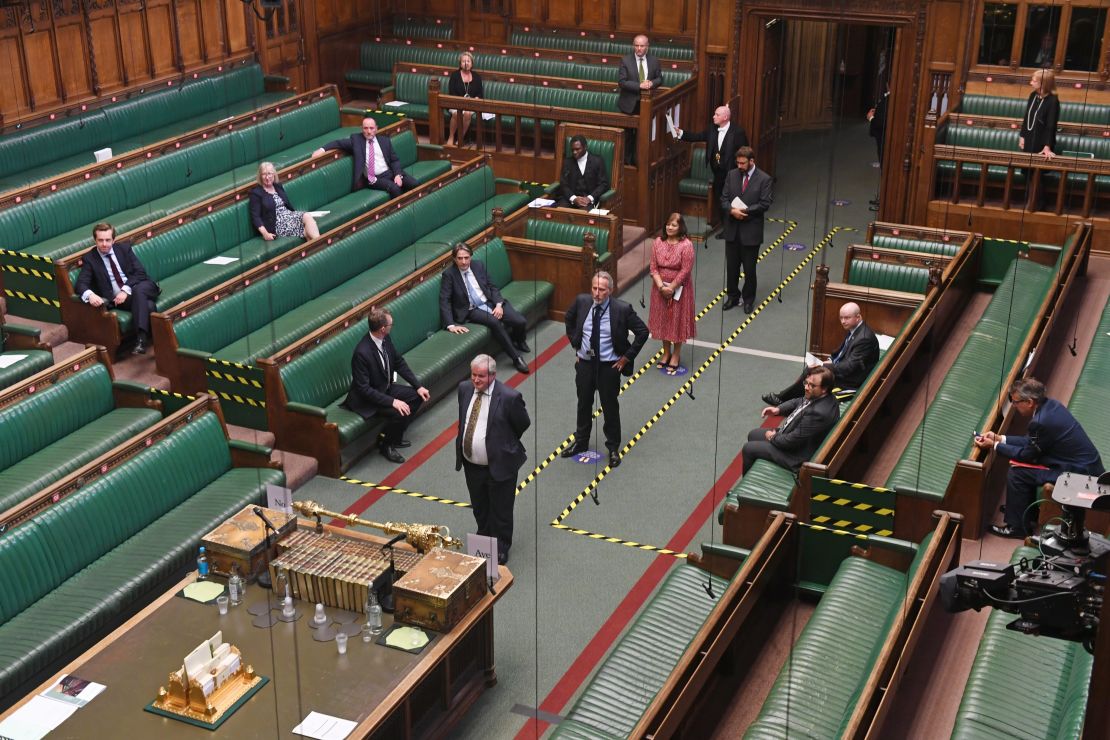A UK government minister has tested negative for coronavirus after he appeared to be unwell in the House of Commons chamber.
Business Secretary Alok Sharma went into self-isolation after he repeatedly wiped his head and nose with a handkerchief and held his forehead as he made a speech on Wednesday, raising questions over whether the UK government was right to require its lawmakers return to Parliament while the number of new coronavirus infections remains high.
“Huge thanks to everyone for their really kind messages over the last 24 hours and my grateful thanks also to the parliamentary authorities and Speaker for their support yesterday,” Sharma wrote in a tweet on Thursday.
“Just had results in and my test for Covid-19 was negative.”
The House of Commons had been operating on a hybrid basis in recent weeks, with a restricted number of MPs allowed in the chamber and others permitted to take part and vote from home.
But in a move led by Jacob Rees-Mogg, Leader of the House of Commons and a traditionalist Conservative MP, the government used its parliamentary majority to end that arrangement earlier this week.
MPs were forced to return to Westminster if they wanted to debate and vote on legislation. But House of Commons authorities insisted that social distancing rules be maintained, meaning lawmakers had to join a huge line in order to vote in the traditional manner of passing through booths as tellers tick off their names.
Images shared by MPs on social media show the chaos that ensued. Opposition Labour MP Ben Bradshaw shared photos of lawmakers crammed onto an escalator who “crashed into the back of the voting queue and could neither go forward or back.” He added: “Rees-Mogg passed during this crush and I told him he was a disgrace.”

A House of Commons Procedure Committee report published on May 30 warned the government’s decision to recall the House of Commons to Westminster with a socially-distanced system had “significant deficiencies.” The committee’s report said it has “serious concerns about how it would work in practice” and proposed that “remote voting should continue for a time-limited period, with members who want to be able to vote in person having their votes recorded in the chamber.”
However, in an article for the Politics Home website on Monday, Rees-Mogg wrote: “What is going to change is the quality of scrutiny. The virtual Parliament brought us through the peak of the pandemic but it is no longer necessary to make the compromises it demanded. We can do so much better.”
On Tuesday, following the first sitting after the virtual arrangements were dropped, he tweeted: “Today has shown how much more effective a proper Parliament as opposed to an imitation one is at holding the government to account.”
But despite Sharma’s negative coronavirus test, the anxiety caused by his appearance on Wednesday may cast doubt on the wisdom of forcing lawmakers into a confined space.

Before Sharma’s test result was announced, Liberal Democrat MP Daisy Cooper said on Twitter that Rees-Mogg should resign as Leader of the House for “bringing [it] into disrepute, and needlessly putting lives at risk”. She urged the Speaker Lindsay Hoyle to return parliament to virtual proceedings only with immediate effect.
Labour MP John McDonnell said on Twitter: “I wish Alok Sharma a speedy recovery but this confirms that lives of both staff and MPs are being put at risk in Parliament. It was an irresponsible decision by Rees Mogg and Johnson to force open Parliament. It must now revert to lockdown and online operation.”
This story has been updated to correct the date the House of Commons Procedure Committee report was published.




